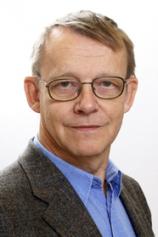Hans Rosling
Biography
Hans Rosling
Hans Rosling was a medical doctor, professor of international health and renowned public educator. He was an adviser to the World Health Organization and UNICEF, and co-founded Médecins sans Frontières in Sweden and the Gapminder Foundation. His TED talks have been viewed more than 35 million times, and he was listed as one of Time Magazine’s 100 most influential people in the world. Hans died in 2017, having devoted the last years of his life to writing FACTFULNESS.
Hans Rosling
- Twitter: https://twitter.com/Hansrosling





